The Existential Question
TEL AVIV — Mira Schejter didn’t have a radio.
Living on the first floor of her home in Jerusalem, the 15-year-old would sit on her steps every night to listen to the news.
One night, sitting on the same steps next to her father, she heard her country declare its independence.
Schejter quickly ran to join crowds of people dancing in the streets, but the celebrations were short-lived.
Just before midnight on May 14, 1948, the establishment of Israel was announced, as the small country’s founders read its Declaration of Independence in Tel Aviv — just ahead of the official end to the British mandate in Palestine.
“We didn’t have time,” recalled Meira Rubin of her own shortened celebrations in the Tel Aviv streets 70 years ago. “It was Friday night, and Saturday the war started.”
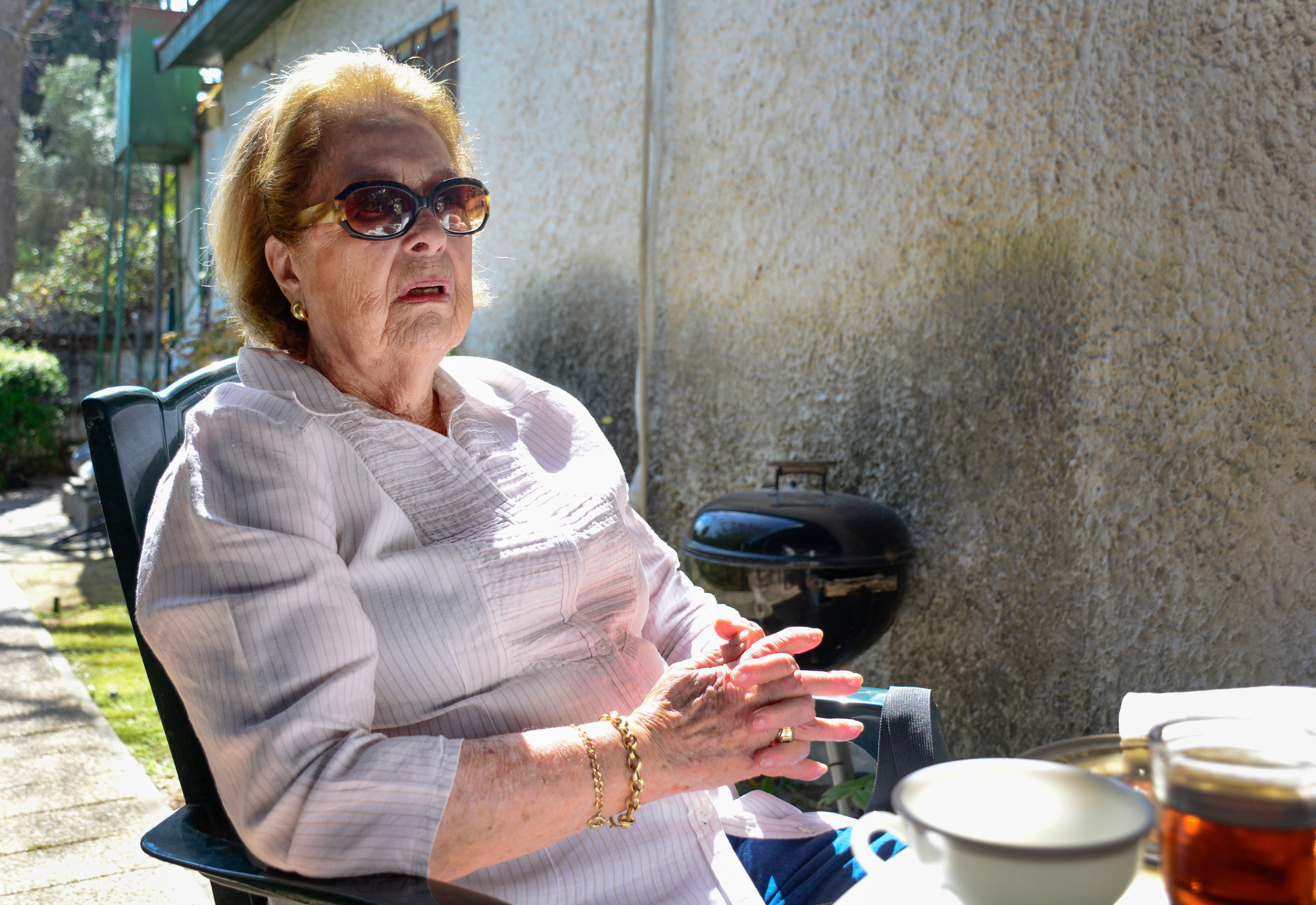
Hours after the announcement, the armies of Egypt, Syria, Lebanon, Jordan and Iraq invaded, attacking with every intent to wipe the infant country from the map, plunging Israel into the first of its wars for survival.
May 2018 marks 70 years after Israel declared its independence. But, 70 years after thousands of people danced with strangers in the streets, under a glow of idealistic, patriot hope — some are questioning if the country has lost sight of its founding ideals.
The generation present at Israel’s creation saw a Jewish State that came together just a few years after the Holocaust under vigorous, socialist ideals of democracy, equality and human rights.
“We hoped,” Ruth Turkenitz said, seeming to hold an entire generation in her words. “I was born to an idealistic father who said… It was a new country. We should ‘be a light to the world.’”
But today’s Israel, with a population increased 10-fold, a booming economy, a robust army, allegations of racial and ethnic discrimination and inaction to Syrian tragedy just miles north, faces critics claiming the state has become arrogant, aggressive and expansionist.
“More money, more money, more money,” Rubin said. “This is something that, for a small country, it is not good.”
Some young Israelis see this a little differently — a consequence of an older generation romanticizing the past.
When he leaves his three-bedroom apartment in Jerusalem, Matan Chaim goes to work at the Begin Cultural Center, near the border of the West Bank, as a licensed tour guide.
“It’s natural,” the 27-year-old said of his elders’ assessment. “We’re going to treat youth that comes after us the same way.”
Chaim, working day-to-day in Jerusalem, wouldn’t argue that the romanticized Israel can go missing from time-to-time.
“Today, I carry more than one magazine in my gun,” Chaim said, a small handgun tucked behind him, underneath his belt. “I contemplate running out of bullets, which is not something I think 27-year-olds should have to worry about or think about in their daily lives.”
Operating under the mantra “live and let live,” Chaim says that amid the problems everyone can see, he still feels an energy throughout Jerusalem and the country.
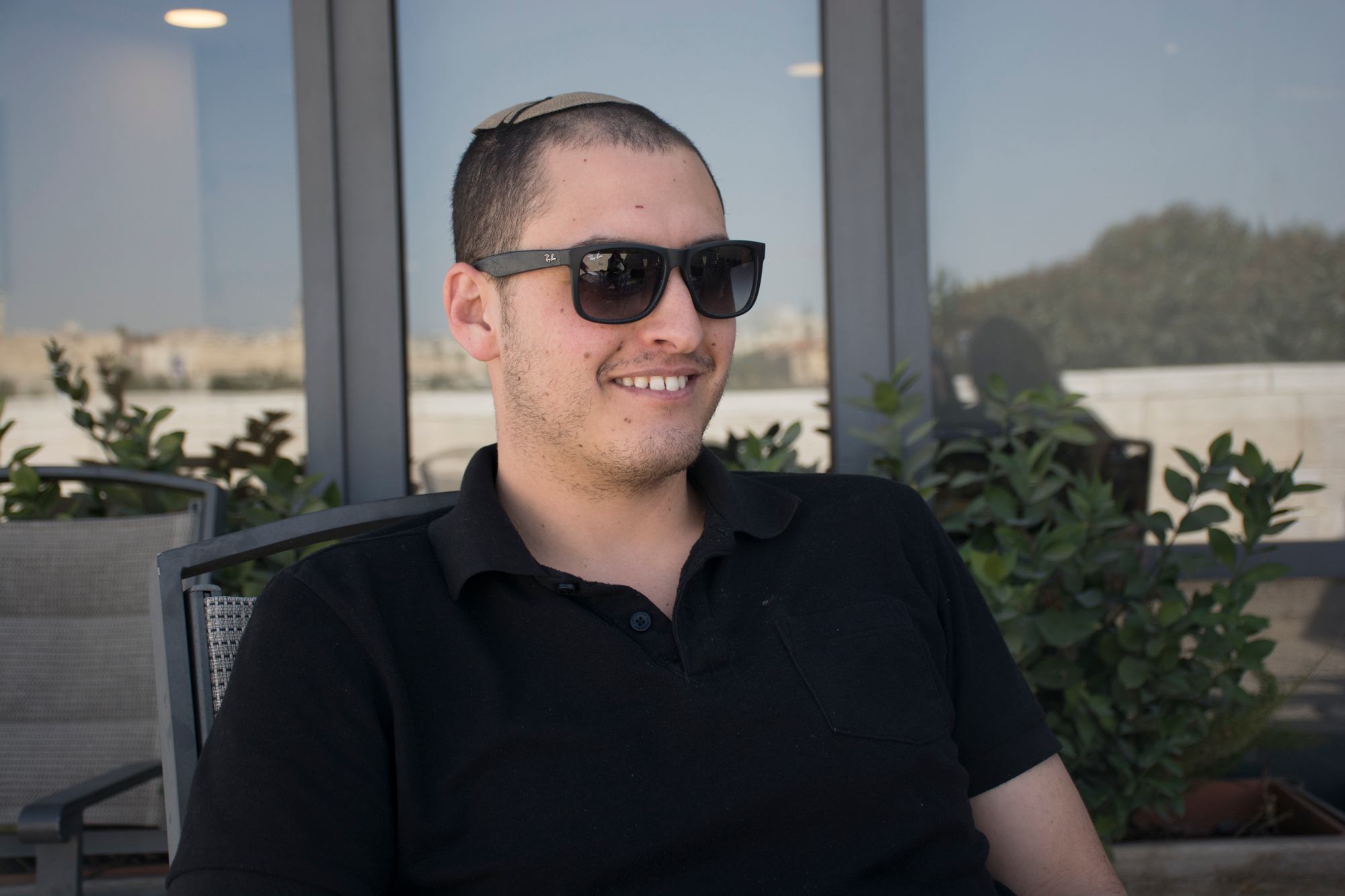
“I believe everyone around me, being secular or observant doesn’t matter, is still looking for a bigger connection… for meaning,” he said.
* * *
On Schejter’s back patio, just out of the beating sun of Ramat Hasharon, a suburb north of Tel Aviv, glasses clinked as her daughter-in-law passed iced tea around the table.
Moments would find Schejter, 85, staring off into space, her eyeglasses catching the sun as she recalled Jerusalem 70 years ago. Rubin, also 85, sat just across the table, with crumbs of coffee cake on the plate in front of her, summoning similar memories of Israel’s early years.
The country had been at war, outnumbered on nearly every front, and on top of that, there were shortages. Schejter said her father volunteered for a military unit close by and was able to bring food back to her family. Many others went without.
People always ask Schejter if she suffered — spending the war in the heart of a city like Jerusalem, having water taken from her well by the municipality to give to other citizens and in no way being guaranteed a meal every day — but she simply says the socialist ideals around her were “part of life.”
Rubin, nearly 40 miles away, led what she called a “normal life” despite the ongoing war — going to school and being in Scouts as a teenager. However, it also included being active in the Haganah — a budding Jewish fighting force before a true army’s existence, later to be dubbed the Israel Defense Forces (IDF).
With pride-filled hearts, Rubin and other young students were often sent to paste billboards for the war effort around the streets of the city.
But for Emanuel Marx, life during the war consisted of far more than finding food or pasting posters.
Unlike like his counterparts on the patio, Marx was born to a Jewish family in Munich, and was among the first refugees to Israel — a nation founded as a safe haven.
In 1939, Marx was separated from his family and brought to England with a Kindertransport — a rescue effort by the British government to bring over about 10,000 children from Nazi Germany and other places at the brink of the Second World War.
After a year with only his younger brother by his side, Marx made his way to Palestine and joined his parents who, miraculously, had escaped the Holocaust.
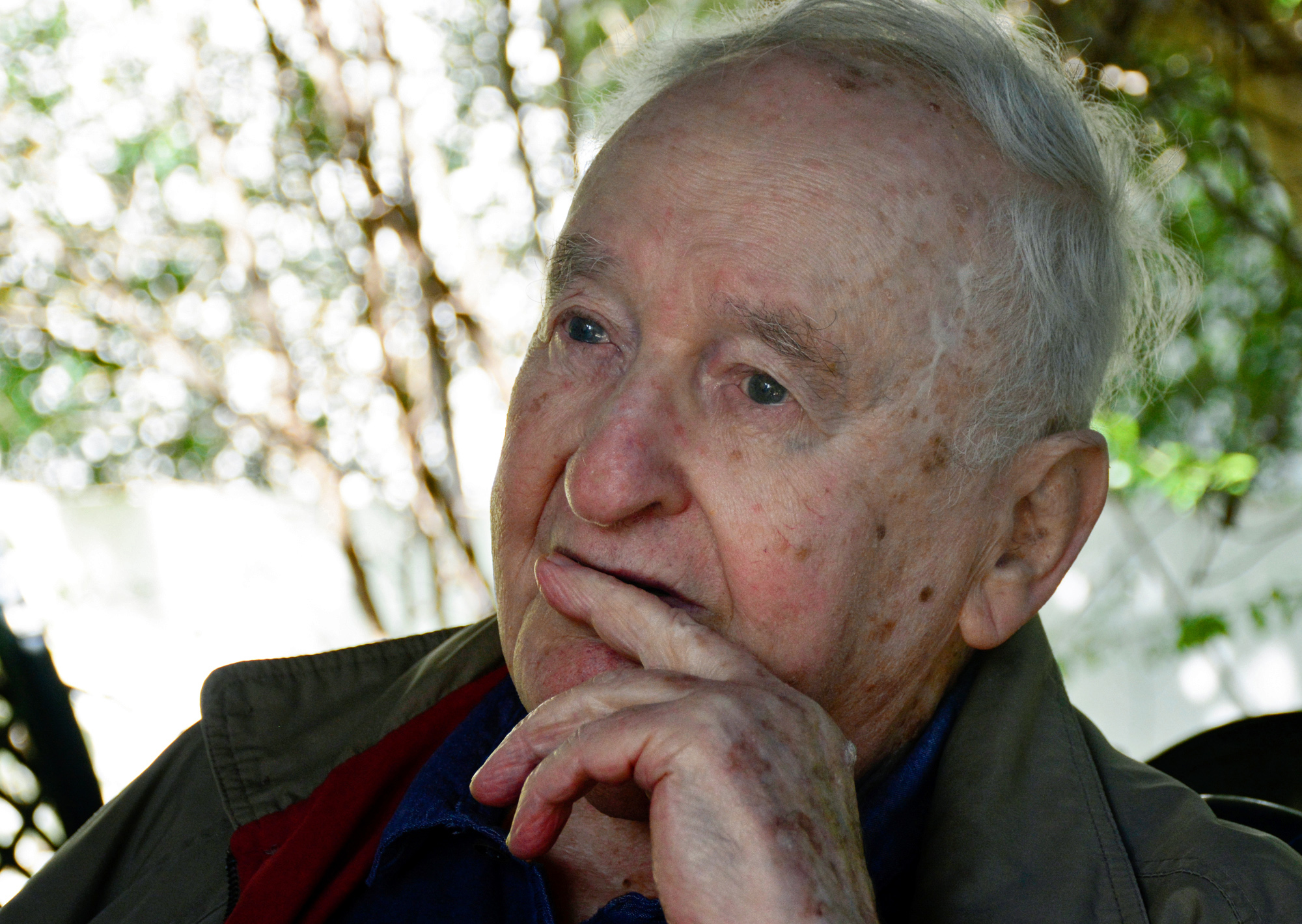
When Independence Day came in 1948, however, Marx wasn’t dancing in the streets.
“During the war I was a soldier,” Marx said. “I was in a company made up from only students, all from the university, and the company was decimated.”
Said to be Israel’s deadliest war, over 6,000 Israelis out of a population of about 800,000 were killed, and many more were wounded.
“In 1948, I knew by the end of the year I would be dead,” he said matter-of-factly. Today, Marx is 90 and jokes, “I don’t feel I’m going to die any day now.”
But, Marx fought for values he says he doesn’t see today.
“Israel is [now] a very powerful state, and that’s a thing I really hate,” he said, “The army is so powerful that Israel thinks it’s no longer interested in relations with neighboring countries.”
Instead of a “light to the world,” Marx said, the state has become more like an island.
Back in Tel Aviv, the afternoon’s sun slipped through Turkenitz’ window shade and glowed in the small Ramat Efal apartment. Turkenitz, 83, shifted in her chair, dark-rimmed glasses slipping into her curled hair, as she continued her story.
“In ’48, my father volunteered to the army,” she said. “He said while the State of Israel was being erected he will not stand idle… He closed his office, and he went to war.”
The war continued for another year, Israel and the Arab states finally reaching formal armistice agreements in February 1949, and did not claim the life of Turkenitz’ father.
“When we see that things are not as we hoped they would be… conflicts between parts of the people [today]… it hurts us,” Turkenitz said. “It hurts us a lot.”
* * *
At the age of 27, Matan Chaim, the Jerusalem tour guide, is married with one son just over a year old and another on the way.
“People enjoy portraying Israel as a point of friction,” Chaim said, taking in the view from one of the Center’s open balconies, sitting at one of a few glass tables in the midday sun. Chaim smiled cooly, with sunglasses resting on his nose and his light-brown yarmulke held in place on his head by two clips.
“Us and the Palestinians, us and secular, us and religion, us and everything…” Chaim said. “People turn Jerusalem into so much more, when it’s just a city with complexities, with government, with tax, with politicians, with people of different religions, ethnicities and genders.”
Contrary to how Chaim sees his city and country portrayed, under a seemingly inevitable lens of media intensity, he says violence does not dominate the average day or even the average week.
Born in Israel, the youngest daughter of her family at 19-years-old, Ruth Garami also goes to work each day at Jerusalem’s cultural center.
With a soft smile resting under deep, brown eyes and a shy demeanor, Garami took notice of the way older generations, like her own parents, can push their ideals on their youth.
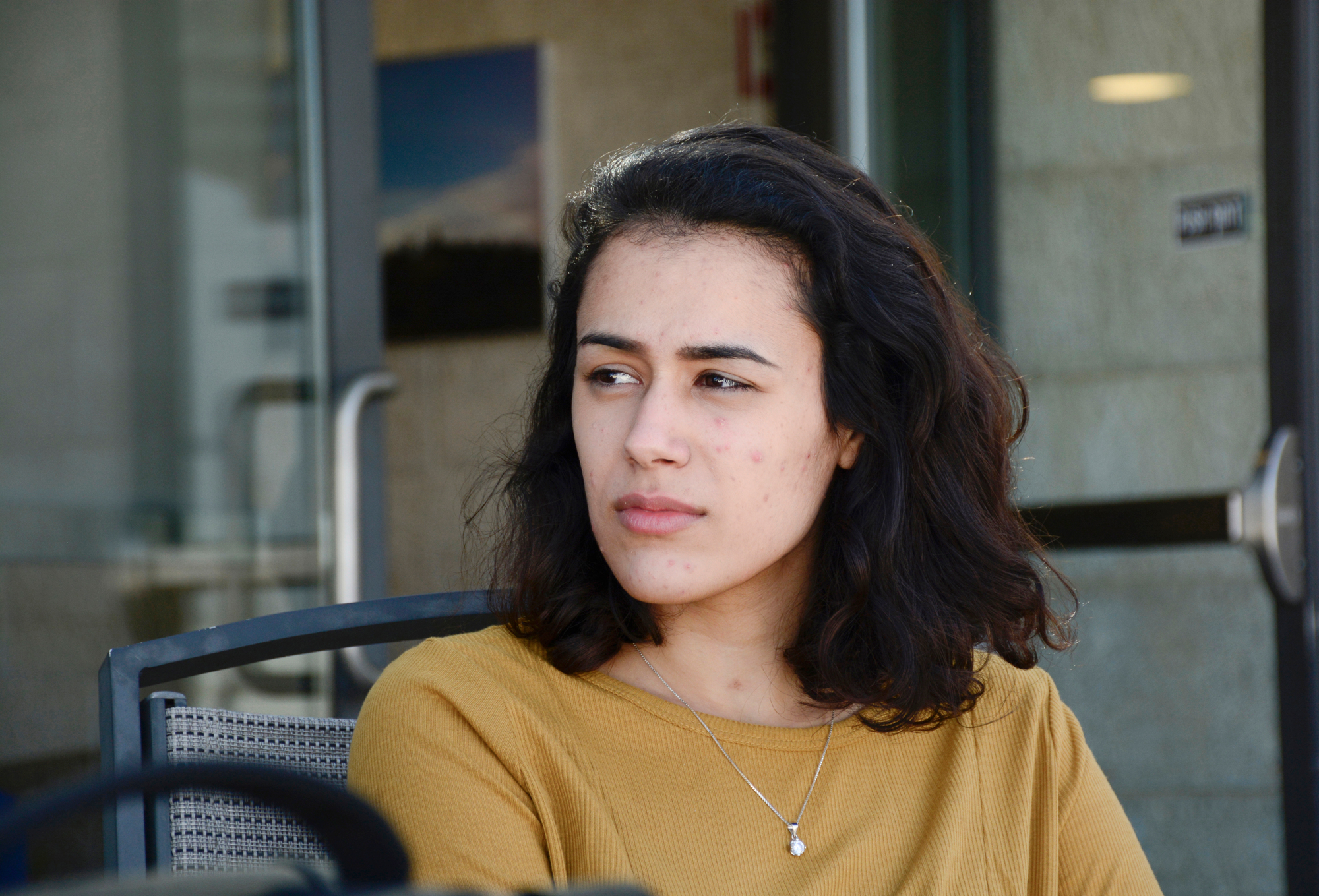
“They believe their way is good,” she said. “There are things that I hate and I complain about a lot, but on the bottom line the things have made me who I am. I’m happy about it.”
The young adults realize Israel is going to be in the hands of their generations and generations to follow. And they are not naive.
“I believe this country has a purpose,” Chaim said, now perched on his chair, sunglasses slipped above his head. “And, I believe I have a purpose in this country.”
“It may be in different ways — I’m not saying necessarily military invention — but there are certain ways [our] people should operate actively, proactively to fix sh** in the world.”
Chaim senses that, long term, the nation will move in a good direction.
“That’s why I’m here…” Chaim said. “I could build my life anywhere else.”
* * *
“My heart is bleeding,” Turkenitz said. “Because…”
She paused, silent for a moment as she searched for her words, and when her mouth opened again, they returned softly.
“Because things are not as I hoped they would be after 70 years, especially in the government. We hoped the ideals would come true and not remain like a myth.”
Those on the Ramat Hasharon patio murmured in agreement, noting there are many in Israel who support the current government, although they themselves would like to see with the youth a change in their country’s politics.
“I was asked by students,” Schejter said, “where do I see the difference between then and now, and I say the difference is a situational difference [of a] state. Now [that] we have a state, we have problems to solve.”
Marx — a past recipient of the Israel Prize, following his study of social anthropology among communities in the country — said truly he is not happy with today, comparing his government to a mafia.
“We can’t be separated, and we have to live together. We have simply no option but to live together,” Marx said. “But the state doesn’t seem to be interested. They just try to repress the Palestinians. It’s very sad.”
However, amid the somber sentiments of first-generation Israel, the keepsake idealism dating 70 years, as well as newly polished frustrations, optimism persists.
“I am confident, and I hope it will be okay,” Turkenitz said. “‘A light to all nations’ — this is an ideal of course, but first of all I would like to have peace here.”
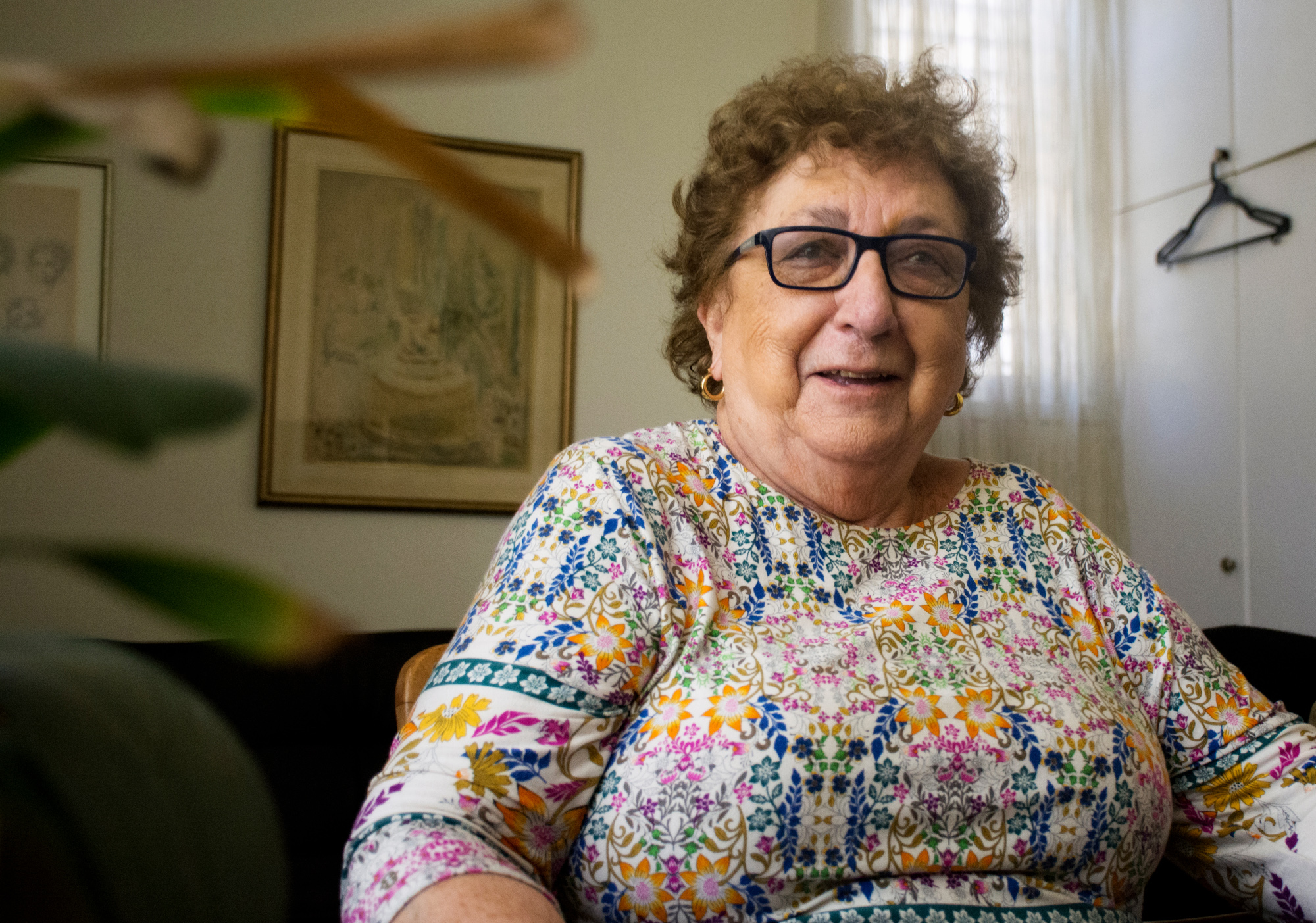
Most stray dishes and glasses were gathered in the center of the patio table, and more clearly the birds could be heard for just a moment.
“I thought it over… It took me time because I’m complaining about politics, about the situation, about corruption,” Schejter said. “The children naturally are positive, they study, they are cultural, they go in the army, they continue to study.”
“I believe in our youth.”
Related